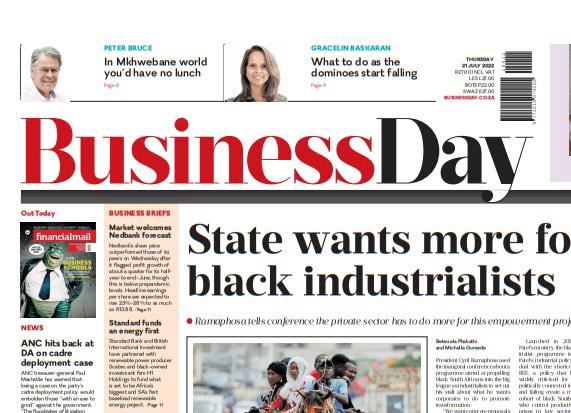The economic dominoes are starting to fall

Implementing measures to enable resource sharing is key to minimising the effects of the game of dominoes started by Vladimir Putin
We’re playing a game of involuntary dominoes. The first domino is “energy” and now that it’s been tipped over thanks to Vladimir Putin-induced shortages, other economic dominoes are starting to fall too.
As the game goes, once the first domino falls it’s hard to stop the process until the last one has fallen. But perhaps with the right interventions we can salvage some of what’s left.
Europe is grappling with an increasingly likely complete Russian gas embargo that would further cripple the region, which has already seen a 60% reduction in gas deliveries from Russia via the Nord Stream 1 pipeline.
A newly published IMF paper shows an embargo could trigger severe recessions in Eastern Europe and Italy. Over the next 12 months countries such as Hungary, Slovakia and the Czech Republic could experience gas shortages of up to 40% and GDP contractions of up to 6%.
Larger European economies will also be hit. Austria and Germany are forecast to experience GDP contractions in both best- and worst-case scenarios, while in Germany’s case this could amount to up to 3%.
The trouble with gas is that it is a key production input for nearly every economic activity, so if it’s in short supply the effects are hard to contain. We see it in housing, cars, manufacturing and more — and given the deeply interconnected nature of the economy, the effects are felt directly in other sectors, and indirectly in input industries.
For example, in July 2020 shipping a 40-foot container from China to the UK cost $1,500. It now costs $11,000. The weight of this increase is pushing companies under. The UK has experienced the highest number of small construction businesses going bankrupt since the 2008 global financial crisis. In April, 400 went under, a 50% increase from early 2020, just before the pandemic hit.
Even big firms are battling. Berkeley, London’s biggest developer, forecasts that the number of new homes will fall by half due to increasing construction costs and development taxes. This has profound consequences for input commodities including steel, aluminium, iron, copper and lead.
The automotive sector is also a high-end user of a range of metals and has been a staple of economic growth over the past two years. But Deutsche Bank recently said it has become “much more cautious” over vehicle manufacturers, cutting target stock prices on General Motors (GM) by 37% and Ford by 29%. GM was downgraded from a “buy” to a “hold”.
Optimism is higher towards electric vehicle manufacturers, and rightly so. It’s a winning sector against a backdrop of high oil prices. But aggressive interest hikes may hamper affordability in the short term.
There’s been a general pullback of private sector activity across the world. S&P measures showed European manufacturing output is contracting for the first time in two years, while US activity has reached a 23-month low.
Countries are scrambling to contain the effects. The UK has announced a windfall tax on oil and gas producers to subsidise consumer energy bills, while China is hoarding supplies of crude oil and other commodities.
But the answer is less about resource nationalism and more about resource sharing. Modelling by the IMF shows the impact of the embargo would be worse if countries hoard gas. Rather, a solidarity agreement is needed before a full gas supply stoppage to co-ordinate reductions in consumption and mechanisms to support households and businesses, particularly during the coming winter months.
There are a couple of avenues for pursuing resource sharing. First, implementing household and industrial controls is key. This isn’t necessary to the extent of load-shedding, as in SA, but limiting consumption will be important in Europe in particular as it goes into winter.
Second, the private sector needs to be encouraged to reduce demand. Germany is rolling out an auction system through the economy ministry, the energy regulator and the country’s gas trading hub that is designed to reduce short-term demand from industrial consumers when supply is struggling to meet national needs.
Through this mechanism companies can decide when they want to cut or suspend gas consumption and thereby avoid the regulator cutting off of supply. The unused gas can then be used by industrial users at the lowest price. The government would compensate firms for stopping production, with payment financed through gas surcharges.
In a globalised environment where segments of the value chain are produced in different countries, a deep recession in one affects all parties that participate in the value chain, and all of us who buy from it. Implementing measures to enable resource sharing is key to minimising the effects of the game of dominoes Putin started.